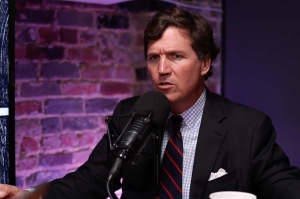Nebraska gov. urges parents to oppose curriculum teaching young kids LGBT ideology

Nebraska Gov. Pete Ricketts has urged parents to speak out against a proposed overhaul of the state’s health education curriculum that would introduce LGBT ideology to students starting in kindergarten.
Ricketts is one of many conservatives expressing concerns about the proposed Nebraska Health Education Standards, unveiled earlier this month.
The governor highlighted his opposition to the curriculum framework in a statement:
“I am calling on the Nebraska Department of Education to scrap the proposed sex education topics that are included in their draft health standards,” he said. “The new standards from the department would not only teach young children age-inappropriate content starting in kindergarten, but also inject non-scientific, political ideas into curriculum standards.
“The sex education standards represent a significant shift in approach to health education, and many of the new themes are sensitive topics that should be addressed by parents at home and not by schools,” he continued. “The draft standards were developed with the help of political activists, and without the input of key mainstream organizations. I am urging Nebraska parents to speak up now, and to share their reaction with the department, so it can be made a part of the formal record to the full board.”
According to the Nebraska Department of Education, “A group of educators (teachers, administrators, ESU staff, postsecondary representatives), led by the Nebraska Department of Education, began the work of developing the Nebraska Health Education Standards in March of 2020. The standards, ‘Nebraska Health Education Standards,’ create the framework for K-12 education in Nebraska. The anticipated approval date by the State Board of Education is Fall 2021.”
An update from the Nebraska State Board of Education from August 2020 revealed that in the process of crafting the health education curriculum framework for the state, “the role of equity in health education” was considered. Those who created the framework include health and physical education teachers, family and consumer science teachers, school administrators, school psychologists, HIV and sexual health specialists, as well as Out Nebraska, an LGBT advocacy group.
The authors of the framework were required to undergo “bias training” last summer. The curriculum will undergo a “bias review” before its anticipated approval by the state board of education this fall.
The framework of topics that will be taught to younger students under the proposed curriculum are divided into eight categories by grade level. Curriculum in the category studying Human Growth and Development is causing the most concern among critics of the framework.
At each grade level, beginning in kindergarten, “students will learn characteristics relating to identity, sexuality and healthy relationships.” The kindergarten curriculum calls on teachers to “discuss different kinds of family structures (e.g. single parent, blended, intergenerational, cohabitating, adoptive, foster, same-gender, interracial).”
The first-grade curriculum teaches students to “define gender, gender identity, and gender role stereotypes.”
In third grade, students are introduced to the topics of “sexual orientation” and “bodily autonomy.” The third-grade curriculum builds on the first-grade curriculum by asking students to “discuss the range of ways people express their gender and how gender-role stereotypes may influence behavior.”
The concepts of gender identity and sexual orientation will also be taught to fourth graders under the framework, where students will be asked to “distinguish between sex assigned at birth and gender identity and explain how they may or may not differ.”
Fifth graders would be taught that “gender expression and gender identity exist along a spectrum.” The sixth-grade curriculum calls for teaching students to “explain the difference between cisgender, transgender, gender non-binary, gender expansive, and gender identity.”
Additionally, sixth graders will be taught to “define sexual identity and explain a range of identities related to sexual orientation (e.g. heterosexual, bisexual, lesbian, gay, queer, two-spirit, asexual, pansexual).”
In addition to concerns about teaching young children LGBT ideology, critics of the proposed Nebraska Health Education Standards are opposed to other portions of the guidelines that come across as overtly political. For example, the health standards for high school students call on students to “evaluate and explain how some laws and policies are viewed as tools of systemic racism.”
While “public and accredited non-public schools in Nebraska are required to include health education within their instructional programs for elementary, middle, and high schools,” the aforementioned types of schools are “not required by law to adopt the Nebraska State Health Education Standards but are required to have standards in place for health education.”
According to the state’s Department of Education, “The decision to utilize the Nebraska Health Education Standards, in whole or in part, are determined by each local school district or school system.”
Nebraska is not the only state to consider implementing a controversial sex education curriculum. A newly introduced bill in New York state would require sex education for kindergarteners and second graders to learn about gender identity.
In a referendum last year, voters in Washington state rejected an attempt to repeal a bill that would require comprehensive sex education to be taught at all K-12 schools in the state. Under one of the approved frameworks for teaching comprehensive sexual health education, schools would teach fourth graders about “sexual positions” and show them pictures of children masturbating.



























